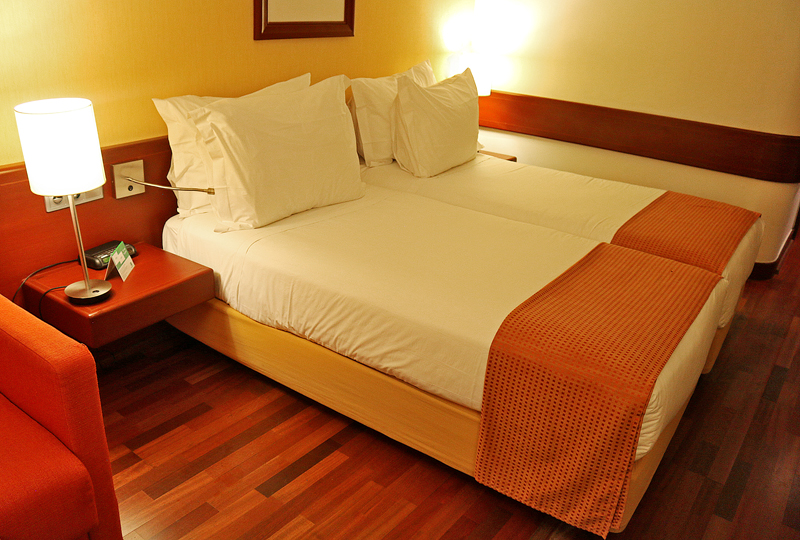“But in fairness the only reason I’m cautious on traveling is getting stuck somewhere in quarantine. I’m not afraid of the virus I’m not afraid to travel I’m simply afraid of getting quarantined in a hotel room ship etc outside the United States. However I’m still going to Madrid in a few weeks and my trip to Tokyo in August is still on”…
Quarantine: Who Pays the Hotel Bill?
…is this comment which was posted by Dublin — who is a reader of The Gate — in response to this article pertaining to the frenzy which the 2019 Novel Coronavirus has caused worldwide; and that other dangers in everyday life exist which potentially pose a greater threat to lives.
In light of the mass quarantine of northern Italy which was issued by decree of the prime minister of that country earlier today, Sunday, March 8, 2020; and given the volatility of the current situation with 2019 Novel Coronavirus — which is also known as COVID-19 or 2019-nCoV — predicting where the next case or cluster will pop up is virtually impossible, which gives Dublin a legitimately reasonable cause to be concerned about unexpectedly being under quarantine while traveling.
Isolation and quarantine help protect the public by preventing exposure to people who have or may have a contagious disease, according to this article from the Centers for Disease Control and Prevention.
- Isolation separates sick people with a contagious disease from people who are not sick.
- Quarantine separates and restricts the movement of people who were exposed to a contagious disease to see if they become sick.
The Vagaries of Quarantine
Being quarantined against your will for the greater good of other people is not necessarily unreasonable if doing so ultimately means saving lives and improving a potentially dire situation — but what if you were quarantined in a hotel or resort property for a week or two beyond the original last day of your stay? Who ultimately pays for the extended stay: the government, the hotel or resort property — or you?
“I don’t see how any hotel can charge you, if you are forced to stay there against your will. It would be ridiculously bad PR to charge quarantined hotel guests, who could easily go to the press and raise a fuss”, opined FlyerTalk member craigthemif. “However if you are stuck in country because of flight cancellations or the airline refuses to carry you, you are probably stuck making your own arrangements, although potentially the airlines would have ‘duty of care’ responsibilities.”
Another consideration is how a fair room rate is determined for the nights spent while staying under quarantine — especially if the quarantine is required by order of the local or federal government. What happens if you cannot afford the total cost of the stay during mandatory quarantine?
“Each circumstance is unique,” a representative of the Department of State of the United States said, according to this article written by Jamie Ducharme for TIME. “In the case of several cruise ships in East Asia that underwent quarantine, the cruise lines themselves assumed the cost of accommodations. In most other cases, individual travelers are responsible for managing their self-quarantine.”
Sometimes government entities can be in dispute over who actually pays for quarantine. According to this article written by David Downey of The Press-Enterprise, “Riverside County wants the federal government to reimburse it for the $1.3 million it spent during the novel coronavirus quarantine of nearly 200 people at March Air Reserve Base.”
The debate as to whether the local governments or the Canary Islands pays for guests of the H10 Costa Adeje hotel property in Tenerife — who were quarantined after being suspected of testing positive for the 2019 Novel Coronavirus — is still ongoing, as the insurance company of the hotel property is also involved, according to this article written by Edurne Martínez and José María Camarero of El Comercio — but the guests will likely not pay. For now, the local regional authority initially may pay; but the main government may eventually contribute.
In the United States, payment for care and treatment shall be in the sole discretion of the Centers for Disease Control and Prevention; and subject to the availability of appropriations, according to Title 42, 70.13 of the Subsection the Electronic Code of Federal Regulations. Payment is dependent on a number of factors — including the type of disease or virus which caused the quarantine; how reasonable are the costs for the care and treatment of the illness; and what services and items qualify for the payment as three of many variables.
Who pays in jurisdictions outside of the United States may vary. “FWIW, a friend of mine works at a hotel in Taipei”, posted FlyerTalk member jpdx. “They had a guest checking in a few weeks back who informed them that he’s arriving from Wuhan. Per Taiwanese government regulations, he was forced to quarantine and stay in his room for 14 nights. He was aware of it and expected it. They forced him to pay (he used points IIRC), but cut him a deal of sorts on food (he was also an elite member, but obviously couldn’t avail of lounge benefits, so they gave him room service breakfast and a light dinner for free). Probably a fair arrangement since it was ‘by choice,’ although TBH these hotels have ridiculously low occupancy, but are not lowering their rates, so there is an argument to be made that it’s unethical to charge full rates to quarantined guests.”
FlyerTalk member nkob claims that the government of the Netherlands — and in particular, the Ministry of Foreign Affairs, which is also known as the Ministerie van Buitenlandse Zaken or BUZA — pays nothing in the event of an official quarantine. Anyone who has been quarantined needs to contact the company which issued their travel insurance or the travel agency through which the trip was purchased — but not the government itself.
Quarantine Covered by Trip Insurance
Purchasing trip insurance can potentially protect against unexpected costs — but although some travel insurers do cover quarantine situations, ambiguities may still arise, as coverage could depend on whether the quarantine was ordered by a doctor, or on whether an entire ship or hotel or resort property — versus an individual person — is ordered into quarantine. If the coverage is denied, you are likely out of luck — and the bill for your unexpected extended stay could easily cost thousands of dollars.
“The most important thing to remember is that standard travel insurance does not cover you if you decide not to travel because of the outbreak. Nor does the type of insurance that comes with certain credit cards”, according to this article written by Curtis Tate of USA TODAY. “Travel insurance can cover you, though, in case of a disruption while you’re on your trip, such as a quarantine period. But you’ll pay extra for a policy that allows you to cancel because of coronavirus.”
Some credit cards may offer trip insurance pertaining to quarantine as part of the benefits which are included in the annual fee; so purchasing additional travel insurance may not be necessary. Read the terms and conditions of the policy offered by the credit card carefully to determine the actual coverage — and contact a representative of the financial institution which issued the credit card for clarification if needed.
Summary
Regardless of whether you can pay if you are stuck with the bill, do not even think about violating the quarantine, as it can be far costlier than the folio itself from the hotel or resort property. “If someone violates the quarantine they face a fine of up to $100,000, a year in jail, or both”, according to this article written by Rachel Wulff of KOVR-TV CBS13 News in Sacramento. “And, if someone dies as a result of a person breaking the quarantine, the fine goes up to $250,000.”
Quarantines are generally rare worldwide; but in light of the 2019 Novel Coronavirus situation, you could be detained against your will if you are in the vicinity of where a case has been confirmed. This example of a Quarantine Order for Novel Coronavirus is a federal order from the Centers for Disease Control and Prevention.
Other than relying on the travel insurance which may be offered as one of the included benefits of your credit card or purchasing travel insurance — which may or may not cover your expenses — avoiding destinations which are within the vicinity of known areas where 2019 Novel Coronavirus is prevalent may be the best way to avoid the hassle and expense of being quarantined.
Photograph ©2018 by Brian Cohen.

